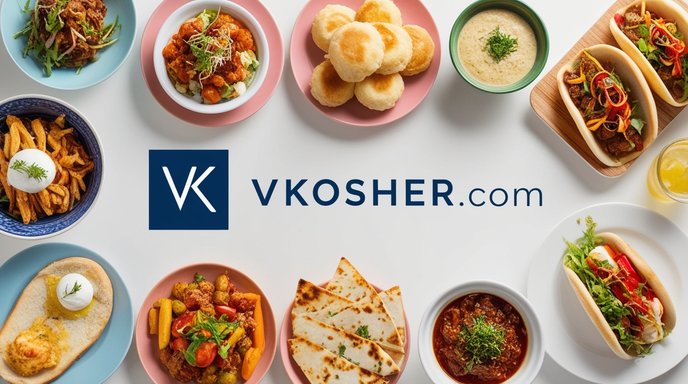Understanding Dolcetto Kosher
Dolcetto, a term often associated with sweet treats and indulgence, takes on a new meaning when paired with the concept of kosher. The fusion of these two ideas—Italian confections and Jewish dietary laws—brings forth a unique culinary experience that appeals to a wide audience. Dolcetto, which literally means "little sweet" in Italian, typically refers to a variety of pastries, cookies, and desserts. When these sweets are prepared according to kosher standards, they adhere to the strict guidelines that govern the preparation, ingredients, and consumption of food in the Jewish tradition.
Kosher certification is a significant aspect of the Jewish dietary laws, or Kashrut, which dictate what can and cannot be consumed according to Jewish law. The term "kosher" means "fit" or "proper," and it encompasses a wide range of foods, including sweets like dolcetto. For a dolcetto to be considered kosher, it must be prepared in a way that complies with these dietary laws. This includes using ingredients that are kosher, ensuring that the equipment used in preparation is kosher, and following specific rules regarding the mixing of dairy and meat products, among other regulations.
The Allure of Kosher Dolcetto
The concept of kosher dolcetto is intriguing to many because it combines the rich, indulgent flavors of traditional Italian sweets with the purity and rigor of kosher certification. For those who observe kosher dietary laws, finding high-quality, kosher-certified desserts can be challenging, especially when it comes to gourmet options like dolcetto. The availability of kosher dolcetto allows for an elevated dessert experience that aligns with their dietary practices.
For non-Jewish consumers, kosher certification often represents a level of quality and cleanliness that is appealing, even if they do not follow kosher laws themselves. Many people choose kosher products because they believe the certification process ensures a higher standard of preparation and ingredients. This makes kosher dolcetto an attractive option for a broad audience, from those strictly observing Jewish dietary laws to those simply looking for high-quality, well-prepared sweets.
Crafting Kosher Dolcetto
The process of making kosher dolcetto is an art that requires both skill and knowledge. It begins with sourcing kosher-certified ingredients, which can be a complex task depending on the availability of such products. All ingredients must be certified kosher, meaning they have been inspected and approved by a kosher certification agency. This includes basic ingredients like flour and sugar, as well as more complex components like chocolate or fillings.
In addition to ingredient selection, the equipment used to prepare kosher dolcetto must also be kosher. This means that the equipment has either been used exclusively for kosher food or has undergone a koshering process to remove any non-kosher residue. The koshering process can involve methods like boiling or blowtorching, depending on the material of the equipment and the type of food it has been in contact with.
Once the ingredients and equipment are prepared, the actual baking process can begin. Kosher dolcetto recipes are often adaptations of traditional Italian recipes, modified to meet kosher standards. For example, if a traditional dolcetto recipe calls for butter and the dolcetto is being prepared in a meat kitchen, a kosher substitute like margarine might be used instead. The baker must also ensure that no dairy and meat products are mixed during preparation, as this is strictly prohibited under kosher law.
Kosher Dolcetto and Jewish Holidays
Dolcetto kosher takes on a special significance during Jewish holidays, where the preparation and consumption of kosher foods are integral to the observance of the holiday. For instance, during Passover, when leavened products are forbidden, kosher dolcetto must be prepared using ingredients that are specifically certified for Passover. This often means using matzo meal instead of flour and ensuring that all ingredients are free from chametz (leavened grains).
During other holidays, such as Hanukkah or Purim, kosher dolcetto might be made in more traditional forms, but with an added emphasis on holiday-specific themes or ingredients. For example, a kosher dolcetto for Hanukkah might incorporate oil-based ingredients to symbolize the miracle of the oil, while a Purim dolcetto might be shaped or decorated to resemble the traditional Haman's ears pastry, hamantaschen.
The Market for Kosher Dolcetto
The market for kosher dolcetto is growing as more consumers seek out kosher-certified products, both for religious reasons and for the perceived quality of kosher foods. In recent years, there has been an increase in the availability of kosher gourmet products, including desserts like dolcetto, as more producers recognize the demand for high-quality kosher options.
Kosher dolcetto is often found in specialty stores, Jewish delis, and bakeries that cater to the kosher market. In addition, many mainstream supermarkets are beginning to carry kosher-certified sweets, including dolcetto, to meet the needs of their diverse customer base. Online shopping has also made it easier for consumers to find and purchase kosher dolcetto from a variety of producers, regardless of their location.
Producers of kosher dolcetto often emphasize the quality of their ingredients and the care taken in the preparation process. This focus on quality helps to differentiate kosher dolcetto from other sweets on the market and appeals to consumers who are looking for a premium product. In some cases, kosher dolcetto is marketed not just as a religious necessity, but as a gourmet treat that can be enjoyed by anyone who appreciates fine desserts.
The Challenges of Kosher Certification
While the market for kosher dolcetto is growing, producing kosher-certified products presents several challenges. The kosher certification process is rigorous and requires ongoing oversight to ensure that all aspects of production comply with kosher law. This can include regular inspections by kosher certification agencies, which may require producers to make adjustments to their processes or facilities.
One of the biggest challenges is sourcing kosher-certified ingredients, particularly for specialty items like high-quality chocolate or imported ingredients. These ingredients must not only be certified kosher, but they must also meet the high standards required for gourmet desserts. This can limit the availability of certain ingredients or increase costs, which must then be passed on to the consumer.
Another challenge is maintaining the separation of dairy and meat products, as required by kosher law. In a bakery setting, this might mean having separate areas, equipment, and utensils for dairy and meat products, or it could involve producing dairy-free dolcetto to avoid the need for separation altogether. This level of separation requires careful planning and management, particularly in a busy production environment.
Despite these challenges, many producers of kosher dolcetto are committed to maintaining the integrity of their products while meeting the demands of the kosher market. This commitment is often reflected in the quality of the final product, which can stand alongside the best non-kosher desserts in terms of taste and presentation.
The Future of Kosher Dolcetto
As the kosher food market continues to expand, the future of kosher dolcetto looks bright. More consumers are discovering the joys of kosher-certified sweets, and producers are responding by offering a wider variety of products. In the coming years, we can expect to see even more innovation in the kosher dessert market, with new flavors, ingredients, and preparation methods that adhere to kosher standards while pushing the boundaries of what kosher desserts can be.
The growth of the kosher dolcetto market is also likely to be supported by increasing consumer interest in specialty and gourmet foods. As more people become interested in high-quality, artisanal products, kosher dolcetto has the potential to become a sought-after item, not just for those who keep kosher, but for anyone who appreciates finely crafted desserts.
Conclusion
Kosher dolcetto represents the perfect fusion of tradition and innovation, combining the rich heritage of Italian sweets with the strict standards of kosher certification. For those who observe kosher dietary laws, kosher dolcetto offers an opportunity to enjoy high-quality, indulgent desserts without compromising their religious beliefs. For others, kosher dolcetto is a symbol of quality and care in food production, offering a taste experience that transcends cultural and religious boundaries. As the market for kosher products continues to grow, kosher dolcetto is poised to become a staple in the world of gourmet desserts.




